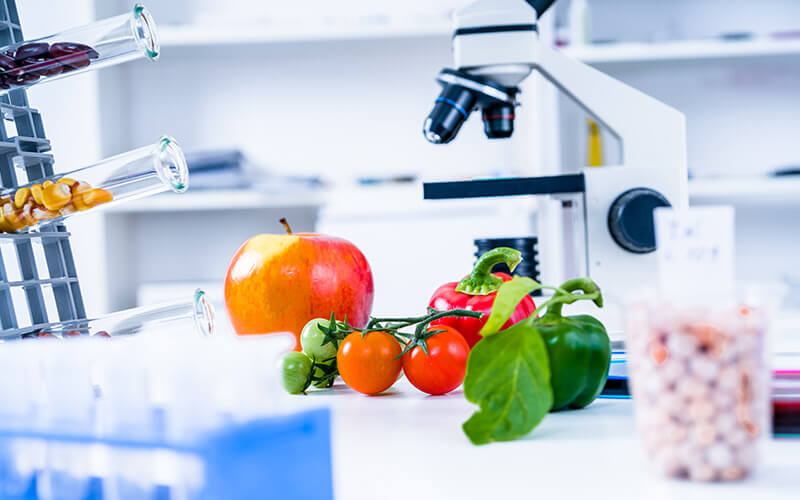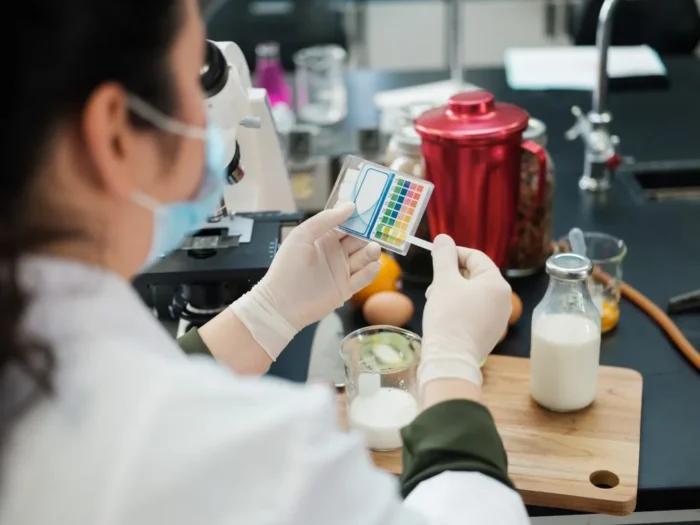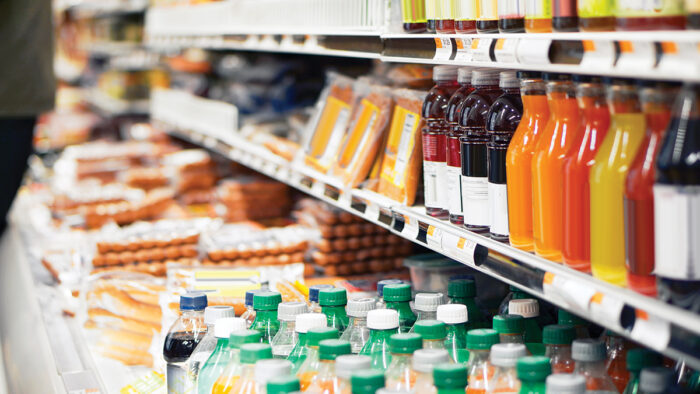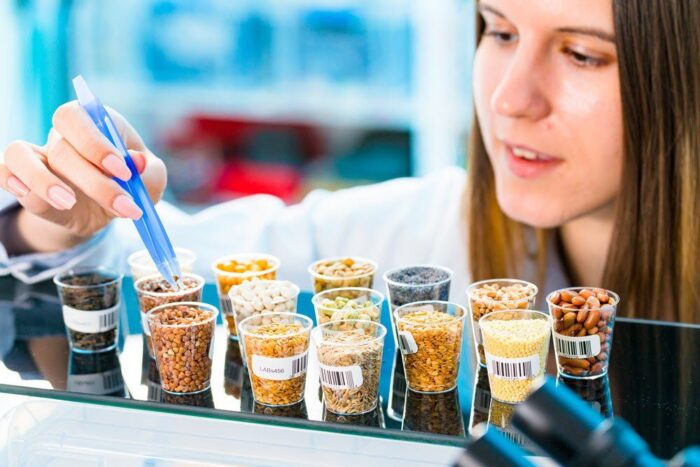
Have you ever paused to think about what ensures the safety and quality of the food on your plate? Behind every bite of your favorite meals lies the critical and meticulous work of food testing labs, the unsung heroes of the food industry. These laboratories operate largely out of sight, yet their impact on our daily lives is immense. They are the vigilant guardians ensuring that the food we consume meets stringent safety and quality standards.
In this article, we’re going to explore the fascinating world of food testing labs. We’ll discuss the various tests these labs conduct to safeguard our food, from detecting harmful pathogens to confirming the nutritional content on food labels. These tests are not just routine checks, they are vital processes that uphold the integrity of the food industry and protect public health. It’s something we largely take for granted now, but historically people were not so lucky and foodborne illnesses were far more prevalent and less understood.

Testing for Pathogens
One of the primary tasks of a food testing lab is to check for harmful bacteria and viruses, such as Salmonella and E. coli, which are known to cause foodborne illnesses. To detect these pathogens, labs use a variety of techniques, including culturing methods where samples are grown under controlled conditions to identify bacterial growth, and molecular methods like PCR (Polymerase Chain Reaction) that detect the genetic material of pathogens.
Pathogen testing is crucial because it helps prevent outbreaks of foodborne illnesses, ensuring that the food reaching consumers is safe to eat. By regularly testing food products for these harmful organisms, food testing labs play a key role in safeguarding public health and maintaining confidence in the food supply.
Testing for Allergens
Another critical function of food testing labs is identifying common food allergens, such as nuts, gluten, and dairy. This testing is vital because even trace amounts of allergens can cause severe reactions in people with allergies. Labs use various methods to test for allergens, including immunoassay techniques like ELISA (Enzyme-Linked Immunosorbent Assay), which can detect specific allergen proteins in food products.
It should go without saying that allergen testing is absolutely vital for consumer safety. It ensures that food labels accurately indicate the presence of potential allergens, helping people with food allergies avoid foods that could harm them. In essence, allergen testing is a critical step in food safety that helps protect some of the most vulnerable consumers.

Nutritional Profile Verification
Food testing labs play a crucial role in verifying the nutritional content that you see on food labels. This process involves testing for various components such as vitamins, fats, sugars, and proteins. Labs use methods like chromatography and spectrometry to accurately measure these nutritional elements.
Why is this important? Accurate nutritional labelling is not just a regulatory requirement. It’s essential for consumers who rely on this information for dietary planning and health management. For instance, someone monitoring their sugar intake for health reasons needs to trust that the sugar content listed on a food label is correct. Therefore, the verification of nutritional profiles by these labs is fundamental to ensuring that consumers can make informed and healthy food choices.
Shelf Life Testing
Determining the shelf life of food products is another vital task performed by food testing labs. Shelf life refers to how long a product remains safe to consume and retains its quality. Labs test this by exposing the product to different environmental conditions such as temperature, humidity, and light, which mimic the conditions a product might encounter from production to consumption.
Through shelf life testing, scientists can predict how long a food item will stay fresh and at what point it will start to deteriorate. This testing is important because it ensures that consumers receive products that are not only safe to eat but also of the highest quality throughout their shelf life. Additionally, accurate shelf life information helps in reducing food waste, as it aids manufacturers and consumers in understanding how long food will remain good to use.

Quality Control Tests
Quality control tests in food labs focus on ensuring that food products meet specific standards of quality and consistency. These tests examine aspects like texture, taste, and color, which are crucial to the consumer experience. For instance, labs might test the crispiness of a chip or the smoothness of a chocolate bar. Sensory testing is often used for taste and texture, where trained panelists or specialized instruments assess the product. Color consistency is checked using colorimeters and spectrophotometers, ensuring that the food’s appearance remains the same batch after batch.
The significance of these types of quality control tests lies in their role in upholding the reputation of food brands and meeting consumer expectations. Consistent quality control means consumers can trust that their favorite products will always meet their standards of taste and quality, fostering brand loyalty and satisfaction.
Testing for Pesticides and Contaminants
Testing for pesticides and other chemical contaminants is a critical function of food testing labs. These tests are designed to detect the presence of unwanted chemical residues in food, ranging from pesticides used in agriculture to contaminants that can enter the food during manufacturing and processing. Techniques like gas chromatography and mass spectrometry are commonly used for their sensitivity and accuracy in detecting these chemicals.
The importance of these tests cannot be overstated, as excessive levels of pesticides and contaminants can have serious health implications, including chronic illnesses and acute poisoning. By rigorously testing for these substances, food labs ensure that the food complies with safety standards and regulations, protecting consumer health and maintaining public trust in the food supply.

Keeping Food Safe for You and Your Family
The extensive testing carried out by food testing labs is a cornerstone in maintaining the safety and quality of the food we eat every day. From safeguarding against pathogens and allergens to ensuring accurate nutritional labels and optimal shelf life, food testing labs allow us to have confidence in the food products we choose. Knowing that such thorough and scientific measures are in place for our protection provides reassurance about the foods we enjoy and trust in the overall integrity of our food supply system.







